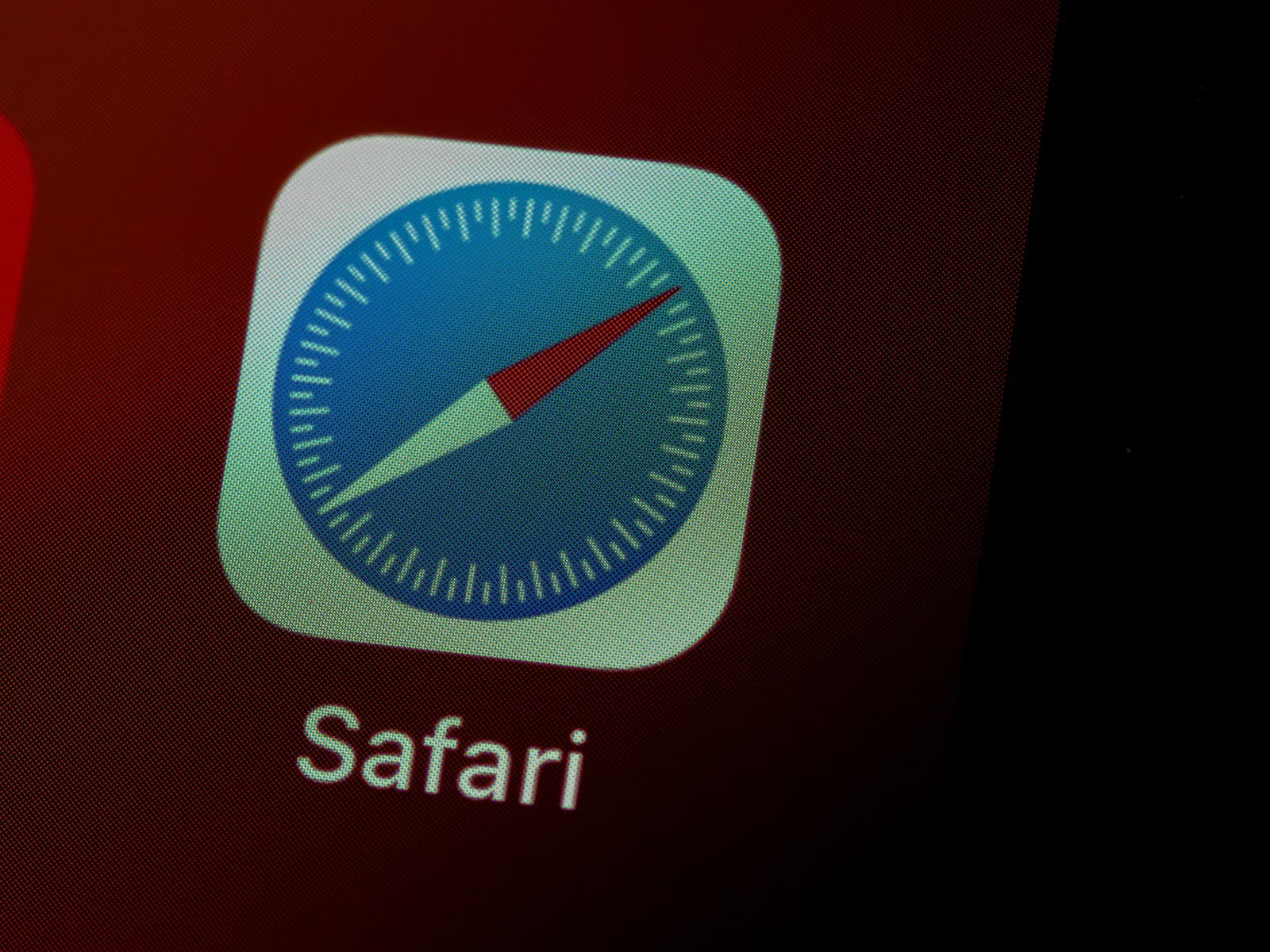In a move that could drastically reshape the internet as we know it, Apple is reportedly rethinking its long-standing partnership with Google Search as the default engine on Safari. This revelation came straight from Apple executive Eddy Cue during the ongoing U.S. Department of Justice antitrust trial against Google.
According to Cue, Apple is “actively looking at” AI-powered alternatives like ChatGPT, Perplexity AI, and Claude (Anthropic)—a signal that the traditional search paradigm may be on its way out. The news sent Alphabet Inc.’s stock spiraling downward by more than 9%, showing just how high the stakes really are.

This isn’t just another contract negotiation. It’s a potential shift in how billions of people will interact with the web—and it marks Apple’s most serious threat yet to Google’s search empire.
Why Apple Might Be Ready to Move On
Apple’s motivations go far beyond headline-making drama. Several deep shifts in user behavior, business strategy, and AI capability are converging right now:
- Generative AI Is Changing Everything: Tools like ChatGPT and Perplexity don’t just serve links—they attempt to answer questions directly. These systems provide synthesized responses, summaries, and even follow-up suggestions in natural language, all of which align with Apple’s vision of elegant, user-first design.
- Safari Search Traffic Is Declining: Cue testified that Safari’s search traffic declined in April—the first such drop ever. This could be a sign that users are already gravitating toward AI assistants, signaling a new era of information retrieval.
- Apple Intelligence Is Coming: With ChatGPT integration coming to Siri and a partnership with Google’s Gemini model also in the pipeline, Apple is already laying the groundwork for a broader AI transformation across iOS, iPadOS, and macOS.
- Privacy and Control: Apple has built its brand around privacy, and AI search engines that don’t rely on user-tracking for ad revenue may be more aligned with its ethos than Google’s ad-centric model.
- Bargaining Power: Even if Apple doesn’t make the switch, publicly exploring alternatives strengthens its hand in negotiating better terms with Google, which reportedly pays Apple as much as $20 billion annually to be the default search provider.
The AI Search Contenders
Each of the AI tools Apple is reportedly evaluating represents a unique challenge to the old-school search engine model:
- ChatGPT (OpenAI): Through its web browsing mode and plug-ins, ChatGPT offers real-time answers, code generation, summaries, and even trip planning—all with conversational clarity. OpenAI’s deal with Microsoft also powers Bing’s AI search, showing it’s already disrupting Google’s territory.
- Perplexity AI: Marketed as an “answer engine,” Perplexity emphasizes transparency by citing sources clearly and encouraging exploration. It’s gaining attention among researchers and students for providing fast, cited responses rather than endless blue links.
- Claude (Anthropic): Known for its safety-centric design, Claude excels in summarization and document reasoning. While less web-integrated today, its long context window and alignment with responsible AI make it a serious contender for Apple’s privacy-first ecosystem.
The Big Challenges
Switching default search engines—or launching its own—wouldn’t be easy for Apple. Here are the key hurdles:
- Search Indexing Is Hard: Google has built and maintained the most powerful web-crawling infrastructure in history. AI models may be good at language, but without a rich and regularly updated index, they can’t match the depth or freshness of Google’s results.
- AI Still Hallucinates: Generative models occasionally deliver inaccurate or fabricated responses. Apple would have to ensure ironclad safeguards before deploying such tools as primary search solutions.
- User Habits Die Hard: Google’s name is synonymous with search. Changing consumer behavior, even on Apple devices, would require major UX rethinking and possibly years of transition.
- Revenue Trade-offs: Ditching Google would mean giving up billions annually—money that flows directly into Apple’s Services revenue. Cue admitted he “loses sleep” over that figure, suggesting Apple won’t make such a move lightly.
What Comes Next?
This isn’t the first time Apple has floated the idea of reducing its dependence on Google Search. Over the years, it’s quietly acquired startups like Laserlike, hired search engineers, and developed Spotlight and Siri Suggestions to steer users away from traditional search. But the rise of AI may finally give it the confidence—and the tools—to go further.
Whether Apple builds its own AI search engine, strikes a deal with an emerging player, or keeps Google while layering its own AI features on top, one thing is clear: the web search industry is entering a new chapter.
Google may still be the default—today. But with Apple testing the waters, users should prepare for a future where AI agents—not search boxes—help us navigate the internet.
Optimizing Safari for Enhanced Privacy and Search Capabilities
Safari users can now use two different search engines simultaneously thanks to a new feature in iOS 17, iPadOS 17, and macOS Sonoma. Users can set one search engine for regular browsing and a different search engine for Private Browsing mode, adding a new layer of flexibility to their web searches.
The feature enables users to maintain their preferred search engine for everyday use while switching to an alternative search engine in Private Browsing. This setup proves useful for comparing search results or maintaining different privacy levels across browsing sessions.
Setting up dual search engines in Safari takes just a few steps through the Settings menu. Users can choose from popular options like Google, Bing, DuckDuckGo, and Yahoo for either regular or private browsing modes.
Safari offers powerful tools to customize search preferences and strengthen privacy protections. Users can set different search engines for regular and private browsing while maintaining tight security controls.
Choosing a Default Search Engine
Safari’s default search engine can be changed in Settings. Google serves as the primary option, with alternatives like DuckDuckGo, Bing, and Yahoo available.
The selection process takes just a few taps. Users open Settings, select Safari, and tap the Search Engine option.
Each search engine has distinct advantages. Google excels at comprehensive results, while DuckDuckGo prioritizes user privacy by not tracking searches.
Navigating Private Browsing Features
Private Browsing mode prevents Safari from saving browsing history, search history, and AutoFill information. Users activate this mode by tapping the tabs icon and selecting “Private.”
Private tabs appear in dark gray to distinguish them from regular browsing windows. This visual cue helps users track their privacy status.
Safari clears all private browsing data when users close their private tabs.
Leveraging iOS 17 and iPadOS 17 for Privacy and Search Efficiency
iOS 17 introduced dual search engine support in Safari. Users can now set separate search engines for regular and private browsing.
This feature lets users maintain Google for daily searches while switching to privacy-focused options like DuckDuckGo in Private mode.
The setup requires iOS 17 or iPadOS 17. Users access this by going to Settings > Safari > Private Search Engine.
Enhancing Security with Face ID and Private Search
Face ID adds an extra security layer to private browsing. Users can enable Face ID authentication for accessing private tabs.
To activate this protection:
- Open Settings
- Select Safari
- Toggle “Require Face ID for Private Browsing”
This prevents unauthorized access to private browsing sessions.
Practical Safari Settings for a Customized User Experience
Safari includes several privacy-enhancing settings:
- Prevent Cross-Site Tracking: Limits websites from tracking users across different sites
- Hide IP Address: Masks user location from trackers
- Block All Cookies: Controls data collection
Users can enable content blockers to reduce tracking and improve loading speeds.
Search suggestions can be toggled on or off to balance convenience with privacy needs.
Frequently Asked Questions
Safari’s search engine configuration provides multiple options for customizing default searches and protecting privacy while browsing online.
How can one set DuckDuckGo as the default search engine in Safari?
Users can open Safari Settings, click on the Search tab, and select DuckDuckGo from the dropdown menu of search engine options.
This change applies immediately to all new searches in Safari.
What are the steps to configure a dual search engine setup on an iPhone Safari?
Open iPhone Settings and tap Safari. Select the primary search engine under “Search Engine” for regular browsing.
Tap “Private Search Engine” to set a different search engine for Private Browsing mode.
This feature requires iOS 17 or later versions.
What is the best search engine for privacy when using Safari in 2024?
DuckDuckGo stands out as a privacy-focused search engine that does not track user searches or collect personal data.
Brave Search offers similar privacy benefits with its own independent search index.
How can a user remove an unwanted search engine, like Ecosia, from Safari?
Users can access Safari Settings and select the Search tab to view installed search engines.
Default search engines cannot be removed, but third-party options can be deleted through the Settings menu.
Why does Safari automatically set Yahoo as the default search engine, and how can it be changed?
Safari may set Yahoo as default due to regional settings or carrier preferences on mobile devices.
Users can change this by going to Safari Settings, selecting Search Engine, and choosing their preferred option from the available list.
What distinguishes Brave Search from other search engines for Safari users?
Brave Search operates without tracking users or creating personal profiles for targeted advertising.
It maintains its own search index instead of relying on Google or Bing results.
The service offers a free tier with basic features and a premium version with additional capabilities.







